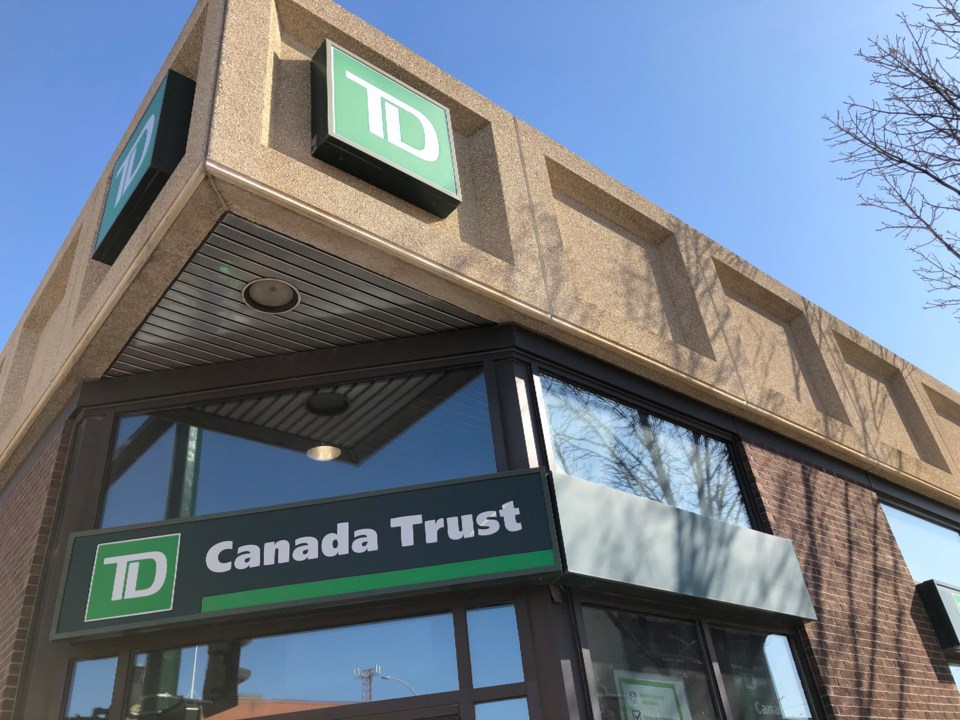B.C.’s consumer protection agency has levied fines against eight banks and credit unions in the province after finding they were not complying with mortgage discharge regulations aimed at preventing fraud and making transactions more seamless.
For failing to discharge mortgages within 30 days of a mortgage loan being paid in full, Consumer Protection BC announced Thursday it levied fines against three big banks and five other financial institutions, including a $5.3-million fine against Toronto Dominion Bank (TD) — the largest, to date.
Joining TD on the roster of institutions that must pay a fine and sign an undertaking that includes quarterly reports on its discharges until July 2024 are: Scotiabank ($387,150); Bank of Montreal ($132,700); First National Financial GP Corporation ($29,200); Coast Capital Savings ($47,900); Vancouver City Savings Credit Union ($86,300); First West Credit Union ($14,000) and Prospera Credit Union ($8,800).
“Consumer Protection BC’s recent assessment of the financial sector’s compliance with provincial consumer protection laws showed that there is broad non-compliance when it comes to the requirement to provide a consumer with a discharge document within 30 days of a mortgage loan being paid in full,” the agency stated, adding investigations were conducted after hearing concerns from the Law Society of BC, Society of Notaries Public of BC and Land Title and Survey Authority of British Columbia.
The agency said it continues to investigate other institutions but did not disclose which ones.
Royal Bank of Canada and Canadian Imperial Bank of Commerce are not named among the country’s big five banks.
What is a mortgage discharge?
A mortgage lender is required to provide the borrower with a discharge document so the Land Title and Survey Authority of British Columbia can clear the property title. In B.C., the maximum fee a lender may charge for this document is $75.
In the event a homeowner sells their home with money owing on the mortgage, a lawyer or notary is typically the key to achieving a discharge as they take the money from the buyer and pay off the lender (with any leftover money going to the seller). At this point, the bank is to provide the discharge document to the borrower and land title office, thus providing the seller and buyer peace of mind of a clean transaction and property title.
Massive fraud underscored discharge documents
Mortgage discharge requirements were strengthened in B.C. following the fraud of lawyer Martin Wirick and alleged fraud of Wirick’s alleged associate and developer Tarsem Gill, whose case remains before the courts after Gill reportedly reversed a guilty plea from May 2013.
Wirick admitted to failing to discharge mortgages when he received money from homebuyers. Instead, Wirick stated he funnelled the sales proceeds to Gill to fund Gill’s development projects.
Wirick was sentenced to seven years in prison and lost his licence to practice law.
The pyramid scheme totalled $40 million, resulting in a payout from the law society’s indemnity fund, which is an insurance fund for clients when faced with a lawyer’s misappropriation of money.
The judge in Wirick’s sentencing noted the scheme “resulted in a number of new reporting requirements being imposed on lawyers with respect to both mortgage discharges and trust accounts. It has also involved changes in provincial legislation with respect to the provision of discharges by mortgage lenders.”
Ron Usher, lead counsel for the Society of Notaries Public of BC, said the Wirick and Gill case caused significant stress on the regular people who were caught up in the scheme.
Usher said one of the excuses Wirick used was to tell victims the banks were delayed in discharging the mortgage. (Wirick also falsified discharges.)
Since Wirick’s 2009 ruling, Usher says he’s observed a deterioration of discharge compliance at banks in B.C. and the COVID-19 pandemic “really jammed” the system causing “extraordinary work” for everyone involved in transactions.
Usher said the undertakings are a welcomed sign moving forward.
“What we had is financial institutions not complying with the law of the land,” said Usher.
“But at least now these institutions have said, ‘OK, we get it, we’ll comply.’”


